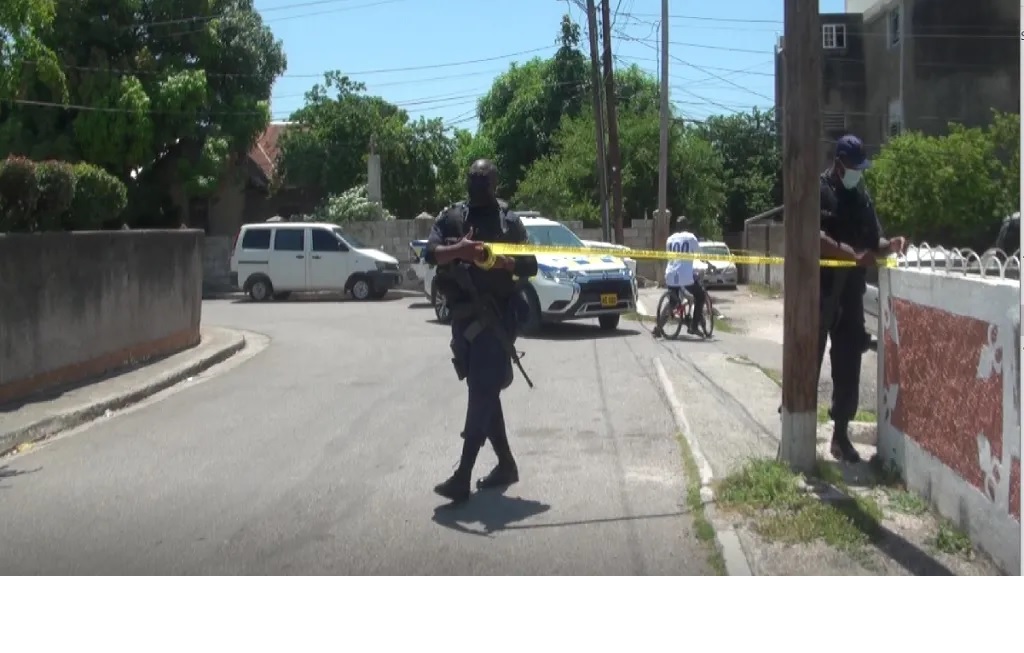Jamaican officials on Monday, May 12, 2025, celebrated a substantial decrease in the country’s murder rate.
However, human rights advocates caution that this improvement in public safety must not compromise accountability, especially amid a sharp rise in fatal police shootings.
Jamaica, long burdened with the Caribbean’s highest homicide rate, has been grappling with gang-related violence for years.
However, early 2025 has brought a notable decline in murders, especially between January and April.
According to Police Commissioner Dr. Kevin Blake, April 2025 marked a historic achievement, with the country recording its lowest murder figures in over 20 years for the second time in the year.
Blake attributed this progress to “careful planning, tireless execution, and a commitment to excellence” by the Jamaica Constabulary Force (JCF), the Jamaica Defence Force (JDF), and other strategic partners.
He highlighted that, compared with the same four-month period in 2024, major crimes dropped by 18%, and murders fell by 37%.
“These are not just statistics,” Blake stated.
“Each number represents lives saved, communities stabilized, and a sign that the tide is turning.”
However, rights groups like Jamaicans for Justice (JFJ) have expressed alarm at a simultaneous and dramatic increase in fatal police shootings.
According to the Independent Commission of Investigations (Indecom), 111 individuals were fatally shot by security forces from January to April 2025.
This is reportedly more than doubling the 44 fatalities recorded in the same period last year, reflecting a 152% surge.
Indecom has urged stronger accountability measures, including the implementation of body-worn cameras.
It is suggested as a response to what it describes as a heightened use of force by state agents.
These concerns were echoed by JFJ, which organized a protest to draw attention to the rising number of police-involved killings.
JFJ’s executive director, Mickel Jackson, joined the call for body cameras, citing discrepancies between official police accounts and those shared by civilians.
In several cases, video footage taken by bystanders reportedly contradicts the police version of events, prompting further scrutiny.
Jackson argued that these conflicting narratives underscore the need for independent verification through body-worn cameras.
Carla Gullotta, executive director of another rights organization, Stand Up For Jamaica, emphasized the importance of fostering trust between law enforcement and communities in high-risk areas.
Meanwhile, individuals directly affected by police actions have also called for increased transparency.
One such individual is Katrina Chin, whose cousin, Andrew Richards, was killed by police in January.
While the investigation into Richards’s death is ongoing, his family maintains his innocence.
Chin recounted the traumatic morning when she witnessed his lifeless body being removed from his home following a security raid.
“We know Jamaica has a serious crime problem,” she said.
“But we can’t be so desperate to lower crime that we end up killing innocent people.”
Chin insisted that JFJ’s efforts are not anti-police but rather focused on ensuring justice is served properly.
She warned politicians against sending messages that suggest law enforcement is above accountability.
Ahead of JFJ’s protest, which asked participants to wear black in memory of the victims, a counter-protest emerged on social media, urging people to wear blue in support of the police.
Prominent businesses like Fontana Pharmacy backed this campaign.
Kevin O’Brien Chang, executive director of Fontana, said the decision to wear blue stemmed from a sense of increased safety thanks to declining crime.
“The police and soldiers risk their lives daily and sometimes pay the ultimate price,” he said.
Even Prime Minister Andrew Holness appeared to endorse the police publicly.
During the protests, he was seen in a blue suit talking with a police superintendent, with media outlets interpreting this as support for the counter-protest.
Holness addressed the surge in police-involved killings, acknowledging that the JCF’s intensified operations against gangs had led to more fatalities.
He stressed that the scale of gang violence demanded a strong, decisive response.
Commissioner Blake defended his officers, calling the JCF a “disciplined, modern law enforcement agency” committed to serving all Jamaicans without bias.
Jackson concluded that advocating for accountability is not incompatible with supporting the police.
She stressed that body-worn cameras would also protect officers by providing impartial evidence during contentious incidents.
Expressing disappointment in Holness, she remarked that the prime minister missed an opportunity to support both the police and accountability.
“A call for accountability should never be seen as anti-police,” she said.







